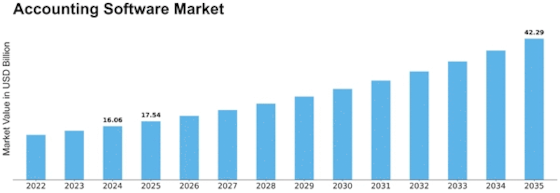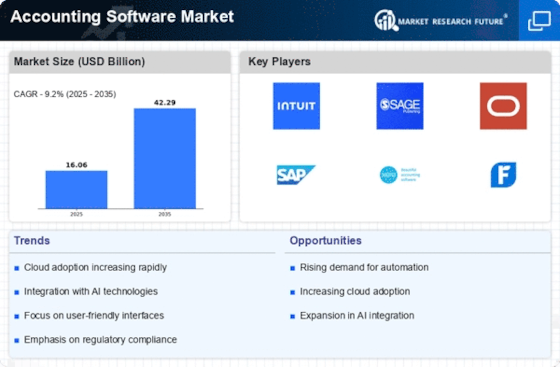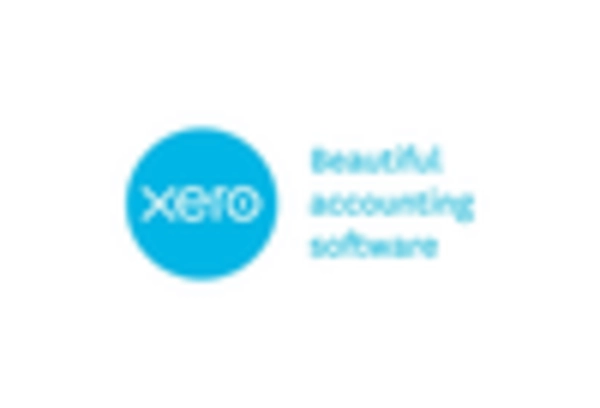Accounting Software Size
Accounting Software Market Growth Projections and Opportunities
Cloud-based accounting software presents a plethora of advantages, including heightened speed, accuracy, and cost-effectiveness in managing financial transactions. In contrast to traditional software confined to accessing financial data solely from the computer hosting the software, cloud-based accounting software offers accessibility to financial records through a web-based interface. The availability of real-time data holds paramount importance for organizations operating in technologically driven environments, a feature seamlessly facilitated by cloud-based accounting software. In contrast, traditional accounting software requires manual updates across each installation, a time-consuming endeavor that lacks the instantaneous access to current data provided by cloud-based solutions. Furthermore, collaborative tasks are streamlined with cloud-based accounting software, permitting multiple access points regardless of operational location, alongside the configuration of privileged access, ensuring selective data accessibility.
The conventional paradigm of accounting software suffers from inherent limitations such as high costs and arduous data backup procedures. Conversely, cloud accounting software offers boundless backups, data redundancy, and hassle-free data restoration in the event of data loss or corruption. Additionally, cloud-based systems boast robust storage capacities capable of accommodating substantial data volumes.
Cloud-based accounting software stands as a technological cornerstone, fostering speed, accuracy, and cost-efficiency in managing financial transactions. Unlike its traditional counterparts, which confine access to financial data within specific computer installations, cloud-based solutions empower users to effortlessly retrieve financial records via a web-based interface. Real-time data accessibility becomes pivotal in technologically driven business environments—a hallmark feature facilitated seamlessly by cloud-based accounting software. In contrast, traditional software's reliance on manual updates across installations hinders instant access to current data, setting it apart from the instantaneous data accessibility inherent in cloud-based solutions. Furthermore, collaborative tasks receive a boost with cloud-based accounting software, offering multiple access points irrespective of the operational location, while also enabling tailored access privileges for selective data retrieval.
The limitations of traditional accounting software, including exorbitant costs and intricate backup procedures, stand in stark contrast to the advantages offered by cloud accounting solutions. Cloud-based systems boast limitless data backups, robust data redundancy, and simplified data restoration protocols in case of potential loss or corruption. Additionally, their substantial storage capabilities efficiently accommodate voluminous data sets, offering a comprehensive and efficient data management solution.



















Leave a Comment